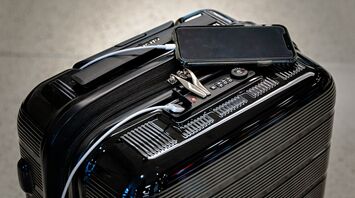Rules for Carrying Consumer Goods When Traveling in the EU

Despite the free movement of goods within the EU, there are specific rules regarding transporting certain consumer goods between EU countries. Non-compliance with these rules, which can vary from one country to another, can result in the confiscation of goods, fines, or even criminal charges.
For those traveling with cash, while there are no EU-wide regulations, it is recommended to check with local customs authorities for any specific rules in the countries of departure, transit, and arrival. This precaution helps travelers avoid any legal issues and ensures a smooth journey.
Travelers within the EU can transport alcohol and tobacco products for personal use, with each country setting its own quantity limits within the EU guidelines. These guidelines allow for 800 cigarettes, 1kg of tobacco, 10 liters of spirits, 20 liters of fortified wine, 90 liters of wine, and 110 liters of beer. It's essential to check the specific limits of the destination country to ensure compliance and avoid any issues at customs.
Entering the EU from a non-EU country also comes with its set of regulations. Travelers can bring certain goods into the EU without VAT and excise duties if they are for personal use and within set limits. These include 4 liters of still wine, 16 liters of beer, 1 liter of spirits over 22% vol., or 2 liters of fortified or sparkling wine. For tobacco, travelers need to check the specific limits set by the customs authorities in the country they are entering.
For wine enthusiasts, France offers some of the world's most celebrated wines. Bordeaux, known for its prestigious red wines, produces blends dominated by Cabernet Sauvignon and Merlot. Burgundy, on the other hand, is famous for its Pinot Noir and Chardonnay, producing some of the most exquisite and sought-after wines globally. These regions offer a rich history and diverse flavors that attract wine lovers from all over the world.
Germany is renowned for its exceptional beer culture. The country boasts over 1,300 breweries, producing a wide variety of beers. Bavaria, in particular, is famous for its traditional lagers and wheat beers, which are enjoyed worldwide. The annual Oktoberfest in Munich is a major highlight, drawing millions of visitors who come to experience the best of German beer and culture.



















